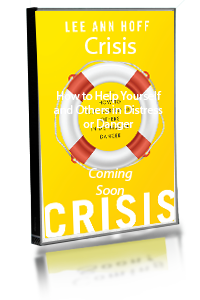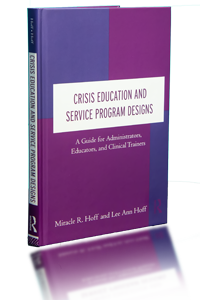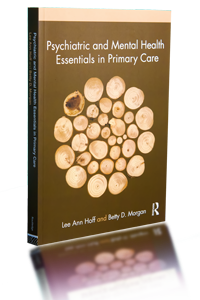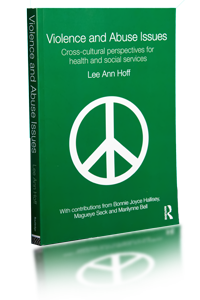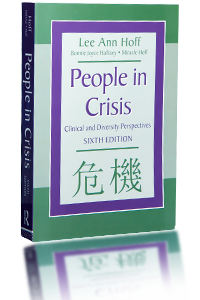
About Us
Lee Ann Hoff, PhD, is a nurse anthropologist and crisis specialist. She is founder of the Life Crisis Institute, has published widely on crisis and violence issues, and is author of the award-winning textbook, People in Crisis (7th edition in process). She has extensive national and international experience as an educator, consultant, clinician, and crisis service manager. Dr. Hoff seeks collaborators for an interdisciplinary Symposium entitled: CRISIS, VIOLENCE, and HUMAN RIGHTS—Education/Training, Research, Service Issues, and authors for a Book Series proposal on this topic under review by Oxford University Press.More...
David G. Blumenkrantz, PhD, EdM, LADC, is a Co-founder and Executive Director of The Center for Advancement of Youth, Family & Community Services. David’s professional career spanning almost firfty years includes direct service, administrations, consultant, trainer, and evaluator of public and private youth, family and human services agencies as well as teacher and educator. He is recognized internationally for initiating the practice of youth and community development through rites of passage and been called the father of modern community rites of passage. His publications focus on youth development, education, community organizing and the process of individual and large system’s change that promotes health and wellness in individuals, communities and the environment. A current book in process focuses on the relationship between rites of passage and people’s sense of connection to each other and community in ways that have historically served our survival and the survival of a sacred Earth: And How are The Children? Rites of Passage and the Future of All Our Relations.
Annie Le Guern is a Ph.D. scientist with over 20 years of research and development (R & D) experience, and has gained business acumen in French and US academic and biopharmaceutical organizations. Dr. Le Guern’s successful projects include building and enhancing synergy across interdisciplinary programs and efficient frameworks that promote heathcare solutions. As an advisor to the Life Crisis Institute, Annie brainstorms with the founder and collaborators for funding and implementation of expert crisis care and violence prevention practices, including organization of an international interdisciplinary Symposium on Crisis, Violence and Human Rights for health and social service professionals.
Donna Bivens, BA, is Project Director of the Boston Busing/Desegregation Project at the Union of Minority Neighborhoods (UMN) in metro Boston. Donna has done racial equity consulting and training over 10 years. For many years she served as co-director of the Women’s Theological Center in Boston focusing on women’s theological education grounded in social action. Nationally, she has worked with scores of organizations around the country, focusing on systemic racism, class, and internalized racism. Donna is co-author of Flipping the Script: White Privilege and Community Building, and related publications.
Bonnie Joyce Hallisey, LICSW, is a senior lecturer at Curry College, Milton, MA, and social worker with high risk immigrant groups in Boston at Kit Clark Senior Services, a divison of Bay Cove Human Services, Inc.
Miracle Hoff, LPG, LAC, LADC, is the Director of Fargo Services at Drake Counseling Services, maintains a crisis intervention and substance abuse and family counseling caseload, and provides clinical supervision to substance abuse and mental health interns in Fargo, North Dakota.
Lisa Brown, MSN, is a psychiatric/mental health nurse practitioner. Her practice includes crisis care and follow-up counseling and psychotherapy, and consultation to medical staff in Lowell, Massachusetts and New Hampshire.
Osvaldo and Margarita Calderon are owners of OMC Productions Inc, in greater Boston. OMC Productions designed and maintains the LIC websites.
Life Crisis Symposium and International Consortium Idea: Systematic Education on Violence Issues for Health Professionals.
These two ideas are in process of discussion and prospective development at Boston University and the University of Massachusetts Lowell. This includes establishing a working agenda with a Steering Committee to obtain funding from Governmental and Foundation sources. Following is a synopsis of the Symposium development effort.
In 1986, the US Department of Health and Social Services published the Report: Surgeon General’s Workshop on Violence and Public Health. Among the outcomes submitted by the 150 interdisciplinary Workshop attendees (including myself) was this recommendation: All health and social service professionals should be instructed and examined on essential theory and practice content regarding violence issues across client lifespan and in diverse settings as a condition of licensure.
The significance of this Workshop Report underscores healthcare as one of the major domains of social life, along with economic, religious, political, educational and legal institutions. Therefore, the power of health and social service professionals to make a difference on this issue cannot be overstated.
Since then, much progress has been made in education and practice protocols regarding violence prevention and the care of both victims and perpetrators, including inspiring idealistic models at Boston University Medical Center and elsewhere. Yet, survey data and anecdotal evidence from attendees of continuing education programs on violence issues reveal the current incidental vs. systematic inclusion of violence and abuse content in the formal education of health and social service professionals. The typical designation of course titles on this topic is “elective” vs. required, results in short-changing vast numbers of health and social service graduates—for example, offering only a guest lecture or two on this complex topic. While keen interest and goodwill abound, educators preparing future health and social service practitioners are challenged by significant constraints: One, the need to cover a wide range of required content in accredited degree programs for national licensing examinations that qualify graduates for professional practice; another, many professors feel unprepared to teach on violence issues because they lacked such content in their own degree programs. This situation is exacerbated cross-culturally in poor countries with few resources to address the issue.
The international consortium idea, including a graduate Certificate Program with adaptability to Continuing Education requirements for practicing health and social service professionals, aims to address this issue. The envisioned program was piloted at the Institute for Applied Psychology (ISPA) in Lisbon, Portugal, where as Visiting Professor I served as curriculum consultant and teacher in several courses. It has been adapted at City University, London, UK. Employing traditional classroom and Online methods, the expansion of this program as proposed here requires a multi-step collaborative approach by prospective Universities in Massachusetts and Canada where I have affiliations. This includes grant proposals under University auspices for necessary financial support from government and Foundation entities. I would spearhead this effort in collaboration with qualified University faculty interested in the consortium idea and/or are already teaching selected courses or modules on the topic.
The multi-step planning and implementation process includes:
- Convene a Symposium – beginning with identification of key stakeholders and successful grant writers, roughly, a 2-year process including refinement of the ISPA pilot-tested Certificate program.
- Launch the Consortium between interested educational institutions in metro Boston for example, Simmons College, University of Massachusetts Lowell, and Boston University.
- Expand to international level (e.g. Commonwealth University system, London, and the Global Health Initiative at Boston University), and the 5-campus U-Mass system.
Drafts of the proposed Symposium and Certificate Program Consortium are available, pending interest.
If you would like to discuss collaboration on this or a related project, or seek further information on the Life Crisis Institute, please contact Lee Ann Hoff at info@crisisprograms.org.
Attachments: Bio Sketch and Resume—Lee Ann Hoff
